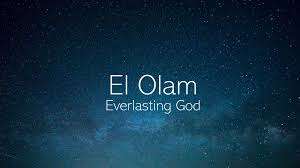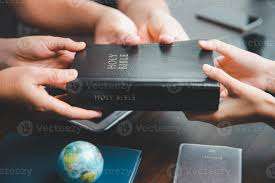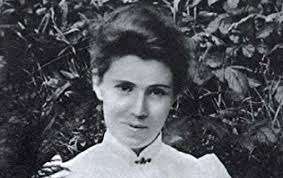
El-Olam : The Everlasting God
Pr. Ajeesh George
We shall attempt a careful and detailed look at El-Olam, a name of God being used first by Abraham at Beersheba. Like El-Elyon and Yahweh, El-Olam is more than just a name of God. It is used to reveal a part of God’s nature and describes an element of who He is. Genesis to Revelation records human relationship with the everlasting God. Kings and prophets, tax collectors and persecutors, a young shepherd boy and and an exiled old man – each life was impacted for eternity by the eternal, everlasting God.
Expressions of various biblical personalities and their worship reveal their encounters with the everlasting God:
Abraham - “Abraham planted a tamarisk tree in Beersheba, and there he called up on the name of the Lord, the eternal God”. (Gen.21:33)
David - “Praise be to the Lord, the God of Israel, from everlasting to everlasting.” (Ps.106: 48)
Isaiah - “For this is what the high and lofty One says----he who lives forever…” (Isa.57:15)
Paul - “Now, to the king of eternal, immortal, invisible, the only God, be honour and glory forever and ever” (1Tim.1:17)
John - “I saw another angel flying in mid-air, and he had the eternal gospel to proclaim to those who live on the earth -to every nation, tribe, language and people.” (Rev.14:6).
Meaning of El-Olam
In Hebrew, 'El' is a word which stands for “God.” Olam meant “eternity, ancient, and everlasting, perpetual, beginning of the world and without end”. El-Olam is the God who will never grow old; the God to whom eternity is what present time is. The question which arises- what the exact meaning of the word is when it is applied to God, as in the passage where it first occurs in Abraham’s life and in the other places where it occurs in Holy Scripture. We can say that El-Olam is the ‘God of Ages’, that is, the God who works His will, not all at once, but through successive stages and varied dispensations.
About 225 of the uses of the word ‘Olam’ are used to convey the meaning ‘everlasting’ (forever and eternal). Olam translated ‘eternal’, originally meant that which was secret, hidden, concealed, or unknown. The Jews used the word when they wanted to refer to an unknown or indefinite time. From the idea of indefinite past or future, the Jews soon developed the idea of ‘eternity’, which referred to the incalculable and unknown past and to the incalculable and unknown future. Olam came to mean ‘everlasting” and is generally translated so in our Bibles. Where the word is used of God, it usually includes his immutability and unchangebleness. Time changes, people change, needs change, but El-Olam never changes. This is the meaning of the word in Psalm 100:5, “for the Lord is good and his love endures forever; his faithfulness through all generations”.
Linguists say that the word 'Olam' was related to the verb ‘Alam’ which meant “to conceal, to hide” (such as “to hide from sight”). So it may be that the idiomatic meaning of Olam was “of long duration, so that the beginning or end of the matter can’t be seen” (on the relatively short and narrow human point of view). In some case, “long-lasting” can be a fitting translation for Olam.
Significance of the divine name ‘El-Olam’
The unique significance of this name of God is that it reveals the nature of His work in relation with his creation.This name gives assurance in the protection, provision and presence of God almighty.
Firstly, this denotes the eternal presence of God. In other words, God has always existed and will always exist. Psalms 93:2 says, “Your throne is established from of old; you are from everlasting. Psalms 90:2 agrees, “Before the mountains were brought forth, or ever you had formed the earth and the world, even from everlasting to everlasting, you are God “. We can’t find a time when God wasn’t there.
Secondly, El-Olam brings out the eternal plan of God. Not only was God there before time began, but His wisdom and plans were completely in place before the creation of the world. According to Proverbs 8, God’s wisdom is as everlasting as God Himself. “Yahweh possessed me (wisdom)... have been established from everlasting, from the beginning, before there was ever on earth.”
God’s eternal plan is stated most clearly in Rev.13:8, “All who dwell on the earth will worship him, whose names have not been written in the book of life of the Lamb slain from the foundation of the world.” As God was still forming the earth, He knew every person who would ever live. He knew every sin we would ever commit, from Adam’s first sin to that little lie you told this morning. So from before the beginning of creation, God had already planned out Jesus’ death, burial and resurrection. His plan of redemption is everlasting. His plan for you is everlasting too. Psalms 139:16 declares “Your eyes saw my substance, being yet unformed. And in your book they all were written, the days fashioned for me, when as yet there were none of them.” God had every single one of your days written in His book before you were even a twinkle in your parent’s eye.He has a perfect plan for you. He also knows about all the times you would continue in His plan-and He planned for that too. In Rom.11, while Paul was writing about God’s plan for His people, he concluded with this “Oh, the depth of the riches both of the wisdom and knowledge of God. How unsearchable are His judgements and His ways past finding out”. When you think about God’s entire plan for us, and all the times we mess those plans up, and yet God still plans for us messing up those plans.
Finally, El-Olam also denotes the idea that God is unchanging. If you could go back to eternity past, God would be exactly the same as He is now. No matter how far into eternity future we go, He will never be any different. God never changes.
El-Olam and Abraham
The first revelation of God as El-Olam was to Abraham in Genesis 21:33. By calling on God as Olam, Abraham was calling on the one who is always and eternally available to us. People today need just such a God as the eternal, unchangeable Lord, El-Olam. Why God was called the everlasting God at Beersheba, instead of somewhere else? Some have suggested that this is the place where Abraham first exercised squatter’s rights in the Promised Land. Giving Abraham and his descendants the land of Palestine was a part of the “everlasting covenant” that God had made with Abraham (17:7). When Abraham dug a well and possessed Beersheba, it was an act of faith in God’s eternal promise. In calling Jehovah El-Olam, Everlasting God, Abraham was expressing faith in the God of the everlasting covenant. There is a mystery or hiddenness (Alam) here, too: it is a mystery that Abraham had enough to see the well of Beersheba as a down payment on the future kingdom.
Beersheba, a place of availability- By calling on God as El-Olam, Abraham was calling on the one who is always and eternally available to us. To use modern theological language, he called up on the omniscient, omnipresent, omnipotent God- the God who is eternally changeless. People today need such a God as the eternal, unchangeable Lord, El-Olam. We call on him because ‘thy tender mercies and thy loving-kindness…have been ever (Olam) of old (Ps.25:6). David also said that “the Lord is good; his mercy is everlasting; and his truth endureth all generations” (100:5). El-Olam means “the mercy of the Lord is from everlasting to everlasting upon them that fear him, and his righteousness unto children’s children. (103:17)
Beersheba, a place of protection- When Abraham called upon El-Olam at Beersheba, he was asking God to protect his well not only as along as Abimelech lived; he sought long term protection as well. Prior to this event, God had given Abraham immediate help according to his daily need. When he needed protection, wisdom or peace, God was there. But when Abraham calls on El-Olam, he is calling for God to protect the Promised Land from the enemies of Abraham’s descendants after he died. Abraham wanted Beersheba and the Promised Land to be his family inheritance forever.
Beersheba, a place of Mystery- Others see the hidden (Alam) God at Beer-sheba. They point out that since the future was hidden from Abraham, he called on the name of the God who can mysteriously see into future ages (Olam). As the apostle Paul teaches, these Old Testament events show types of what was to come in Christ.For example the birth of Issac of a “free woman” and Abraham’s rejection of the “son of the bondmaid” is a picture of God’s dealing with the Jews and later with the gentiles (Gen.4:22-30). Since these things are done in mystery- i,e., their fulfilment awaits a dispensation(Olam) yet to be revealed- they are in the hands of El-Olam, the God of secrets and mysteries.
The tamarisk tree is a long lived, evergreen, a fitting symbol of the covenant Abraham made with Abimelech. In Zech. 3:10 dwelling under one’s tree was a sign of peaceful security. These trees also required a supply of water and thus this act by Abraham indicated the fact that he was secure concerning his right to that parcel of land and had faith that God would provide water in what was otherwise a desert like area. The tree would also function as ‘marker’ of one of Abraham’s sites of worship and as a memorial or memory aid to the acts of God. The covenant Abraham made with Abimelech which secured the land he was to sojourn, was but reflection of the everlasting covenant God had made with him and in which He promised Abraham the land on which he sojourned for many days (Gen21:34). The planting of this long-lived tree, with its hard wood, and its wood, and its long, narrow, thickly clustered, evergreen leaves, was to be a type of the ever-enduring grace of the faithful covenant God.
Everlasting God- From Everlasting to Everlasting
Moses “the man of God” describes the everlasting aspect of God declaring that….. “Lord, Thou hast been our dwelling place in all generations.Before the mountains were born or You gave birth to the earth and the world, even from everlasting (Olam) to everlasting (Olam), you are God (Elohim)... For a thousand years in thy sight is like yesterday when it is past, and as a watch in the night”(Psalm 90:1-2,4). John Calvin says “The everlastingness of which Moses is to be referred not only to the essence of God,but also to His providence,by which he governs the world.He intends not merely that He is,but that He is God.
Spurgeon comments: “Before those elder giants had struggled forth from nature’s womb, as her dread first born, the Lord was glorious and self-sufficient…God was when nothing else was. He was God when it was not a world but a chaos, when mountains were not up-heaved, and the generation of the heavens and the earth had not commenced.” In this Eternal One, there is a safe abode for the successive generations of men (Isa. 26:4). If God Himself were not the same yesterday, today and forever, He would not be a suitable refuge for mortal men (Heb. 13:8). The eternal existence of God is mentioned to set forth the brevity of human life in Psalm 90. It is good to contemplate God’s eternity in the light of man’s frailty. We are creatures of time, but God is eternal. He is our dwelling place from generation to generation. Let us trust in this everlasting God to experience his everlasting provision under his everlasting protection. We can trust him for our yesterdays, our todays, our tomorrows and our eternal future.
I want to conclude here by reminding about the everlasting protection of our Everlasting God. A mother eagle builds a comfortable nest for her young, padding it with feathers from her own breast. But God-given instinct that builds that secure nest also forces the eaglets out of it before long. Eagles are made to fly, and the parent eagle will not fail to teach them. Only then will they become what they are meant to be. So one day the mother eagle will disturb the twigs of the nest, making it an uncomfortable place to stay.Then she will pick up a perplexed eaglet, soar into the sky, and drop it. The little bird will begin to free-fall. Where is Mama now? She is not far away. Quickly she will swoop under and catch the fledging on one strong wing. She will repeat this exercise until each eaglet is capable of flying on its own. Are you afraid of free-falling? Remember, God will fly to your rescue and spread his everlasting arms beneath you. He will also teach you something new and wonderful through it. Falling into God’s arm is not something to be afraid of.
By looking into these details about El-Olam, we can say boldly that this everlasting of God of generations is our God too. He is almighty, and beyond the description of human mind. He is there everywhere to meet every need of his children. And we are safe under his everlasting arms. And this God of Abraham is our God too. Above all, He is eternal and with Him our eternity is safe. Let us look back and thank him, let us look to present and trust in him and let us look forward and have hope in him. Thus we will be blessed, because our everlasting God is with us from everlasting to everlasting.


